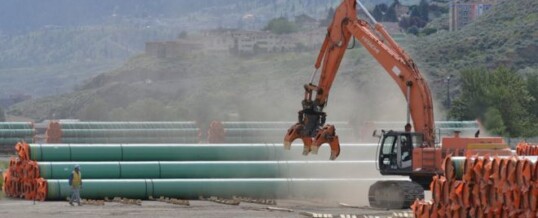
McLeod Group guest blog by Ryan Katz-Rosene, November 18, 2019
The 2019 federal election revealed an underlying contradiction between Canada’s climate change mitigation policy and its energy development strategy. On one hand, voters rewarded the Trudeau government’s efforts to take bold action on climate change. On the other hand, the Prairie provinces demonstrated deep discontent with what they saw as a federal government bent on stifling the energy sector.
Despite trying to find a balance between economic and environmental interests, the Trudeau government’s balancing efforts during its first term – particularly its decision to purchase the Trans Mountain Pipeline and put a price on carbon – only aggravated both sides. Environmentalists believed that the pipeline concession was a death blow to a viable climate plan, while proponents of the oil and gas sector argued that the “carbon tax” would increase the cost of everything and fail to reduce emissions.
Canada thus faces an extremely difficult challenge ahead in reconciling these competing interests. It wants to do well by the world in terms of contributing to climate change mitigation. And yet it also wants to accrue some economic benefit from being in the fortunate position of sitting atop the world’s third-largest oil reserves (169 billion barrels, 10% of the world’s oil).
The Canadian government also wants to achieve reconciliation with First Nations communities. While some of these communities see commercial opportunities in oil and gas development, others vehemently oppose the sector. Moreover, it wants to unify a country which is deeply divided along provincial lines, with Québec and B.C. effectively blocking Alberta oil from reaching the East and West coasts, respectively.
So, what is to be done? I do not claim to have all the answers. But if the Trudeau government sticks with the same approach as before, it is destined to fail.
The previous approach was kneecapped by its unnuanced interpretation of the relationship between the economy and the environment. The Trudeau government’s mantra became “the environment and the economy go hand in hand!”. This adage was rammed down Canadians’ throats at every turn.
The problem is that this is not always true. What’s good for the economy is not always good for the environment, and vice versa. While it is possible to lessen the environmental footprint of growth (in fact, for every dollar of GDP growth today, Canada only emits 65% as much CO2 as it did in 1990), there are nevertheless limits to this trend. In some spaces this type of win-win relationship between economy and environment is simply unattainable.
Attempts to reconcile climate action and growth is a lost cause in the oil and gas sector in particular. Even if it were possible to achieve carbon-neutral production (a nearly impossible target in the case of Alberta bitumen), there is the additional challenge of decarbonizing the transport of oil and gas to market.
Pipelines currently emit the equivalent of 7.1 million tons of CO2 in Canada, more than all emissions from domestic aviation. We would also have to neutralize leaks, known as fugitive emissions, which amount to astonishing 54 million tons of CO2, or 7.5% of Canada’s total emissions. In addition, we would then need to decarbonize oil and gas consumption within the end-use sectors such as transport and heating, which account for 28% and 11% of Canada’s emissions, respectively. Oil and gas extraction alone accounts for nearly 15% of Canada’s total, and these emissions are expected to increase in the coming years. In short, any form of support for oil and gas – be it regulatory approval of a pipeline, or a fossil fuel subsidy – poses a direct challenge to climate action.
By the same token, most aggressive climate mitigation policies – such as putting a price on carbon or investing in renewable energy – pose a threat to the viability of the oil and gas sector. In this particular instance, what’s good for the economy is not good for the environment.
Part 2 of this blog, to be published tomorrow, will address the good news.
Ryan Katz-Rosene is an Assistant Professor at the University of Ottawa’s School of Political Studies and the President of the Environmental Studies Association of Canada.
The McLeod Group recognizes that climate change is a global issue that requires action at many levels. These two blogs explore some Canadian perspectives. Future blogs will examine global dimensions.
Photo: Reuters.
